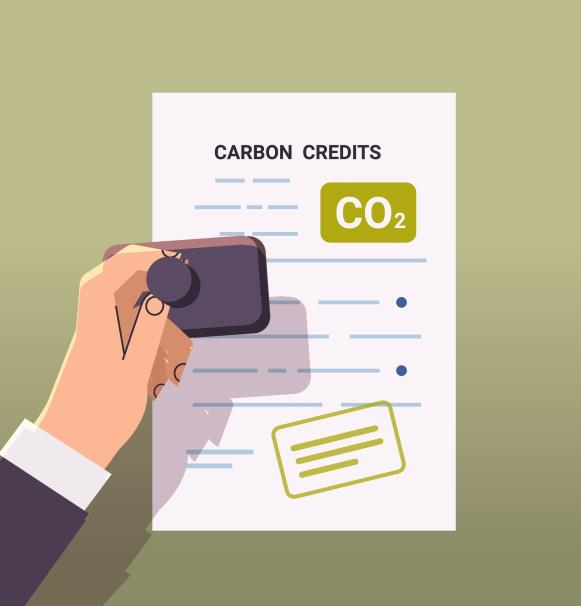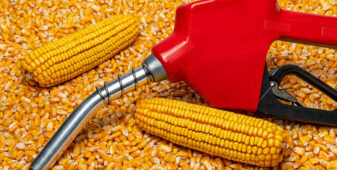Insight Focus
- Criteria sets out principles for carbon credits leading to real climate impact.
- 10 core principles will be used to assess carbon credits.
- Qualifying projects will receive an accreditation to help identify best-practice.
The Integrity Council for the Voluntary Carbon Market (IC-VCM) last week published its long-awaited Core Carbon Principles (CCPs), a set of threshold standards for carbon offsets and the projects that generate the credits around the world.
The CCPs “set out fundamental principles for high-quality credits that create real, verifiable climate impact, based on the latest science and best practice”, the IC-VCM said in a statement accompanying the publication.
The IC-VCM is a private sector initiative set up two years ago to provide guidance on quality standards for the carbon offset market. In the absence of any national or international regulatory authority the carbon market has seen a multitude of different offsetting programmes and types established over the years.
Carbon credits represent reductions in greenhouse gas emissions compared to a business-as-usual benchmark, and are used by corporates to offset unavoidable emissions from their operations.

Ten core Principles will be used to assess carbon credits and projects and the programmes under which they are run. Qualifying projects and their offsets receiving a CCP label that will enable buyers to identify best-practice credits in the marketplace.
Certain of the principles cover offset programmes:
- Effective governance – transparency, accountability, and constant improvement in quality of credits issued by the programme.
Tracking – all credits from programmes can be tracked on a transparent public registry.
- Transparency – programmes should provide all relevant information on public electronic platforms.
- Robust independent verification and validation of projects and credits.
Other principles are aimed at emission reduction projects and credits:
- Additionality – emission reductions being credited would not take place without the help of carbon credit revenues.
- Permanence – All emission reductions must be permanent, or have measures in place to deal with reversals.
- Quantification – conservative, robust and scientifically accurate calculation of emissions reductions.
- No double-counting – emissions reductions should be counted just once.
- Sustainable development – projects and credits should secure best-practice social and environmental safeguards, and offer sustainable development benefits .
- Projects must contribute towards achieving net zero emissions by mid-century.
The IC-VCM now moves to the implementation stage. In addition to the CCPs, the Council has published an Assessment Framework for crediting programmes. This framework will enable the Council to properly and consistently assess the programmes run by organisations including Verra, the Gold Standard and American Carbon Registry.
Later in the year the IC-VCM will issue its Programme-Level Assessment Framework, which will deal with the different categories of carbon credits that each programme issues. The Council said it expects to be able to announce formal CCP labelling approvals later this year.
The Council will audit programmes, make spot checks and respond to complaints, and can review programmes or specific categories if there are concerns about their adherence to the CCPs. Material failings by programmes or categories of credits may result in suspension or termination of eligibility.
CCPs will be updated periodically as science, technology and new developments allow.
Response from the voluntary carbon market has been guarded but positive. The Gold Standard, a leading offset programme, said the CPPs “consolidate existing market standards but don’t raise the bar for ambition or quality.”
“They could have gone further, particularly on Sustainable Development, where we should demand quantitative evidence of impact,” the Gold Standard added.
The programme was also reported to have warned that some of its older project methodologies may not be immediately eligible for CCP labelling, and could require updating.
Louis Redshaw, CEO of Net Zero Markets, pointed out that the CPPs “will at the very least give the market confidence”.
“The devil is in the detail of what will make the grade and what won’t. We wait with keen anticipation to discover more later in the year, particularly to see how Verra and Gold Standard respond to these principles.”
The IC-VCM emerged in the run-up to the UN Glasgow climate summit in 2021 when countries were still disagreeing over how to implement a regulated global offset market. The UN has now agreed the guidelines for a carbon credit market mechanism, and this parallel effort may eventually become the global standard, notwithstanding the IC-VCM’s efforts.
A Supervisory Body for the new UN market has started to sketch out rules and structures that will govern the creation of carbon credits that can be used by countries to meet their net zero goals, and many stakeholders anticipate that the voluntary market will gravitate towards the so-called Article 6.4 UN programme when it formally begins in the next couple of years.







